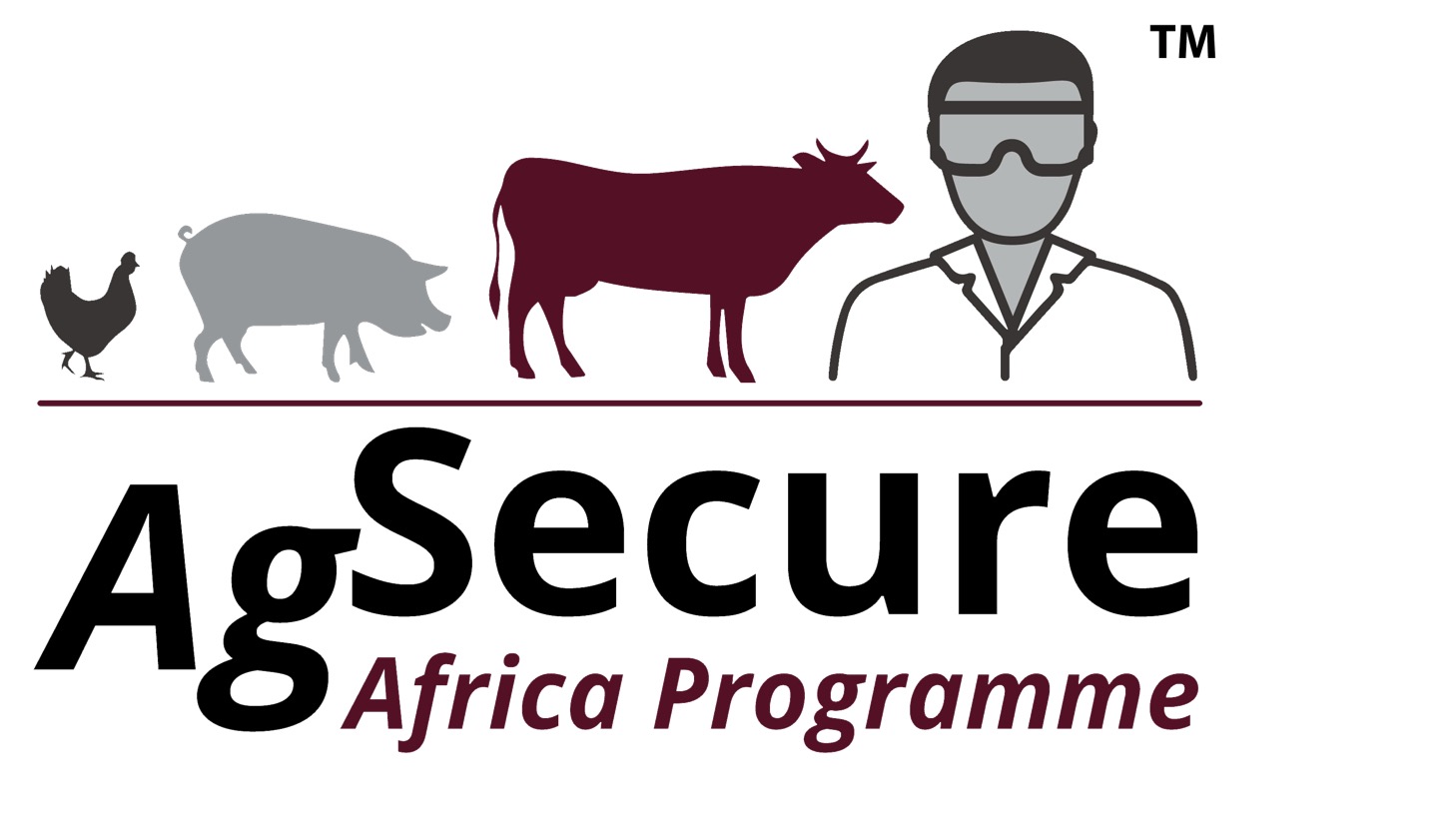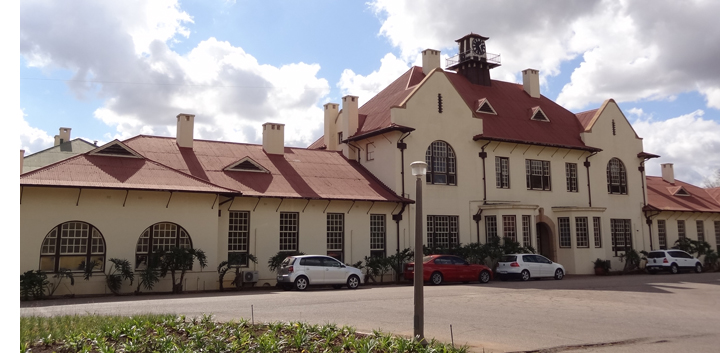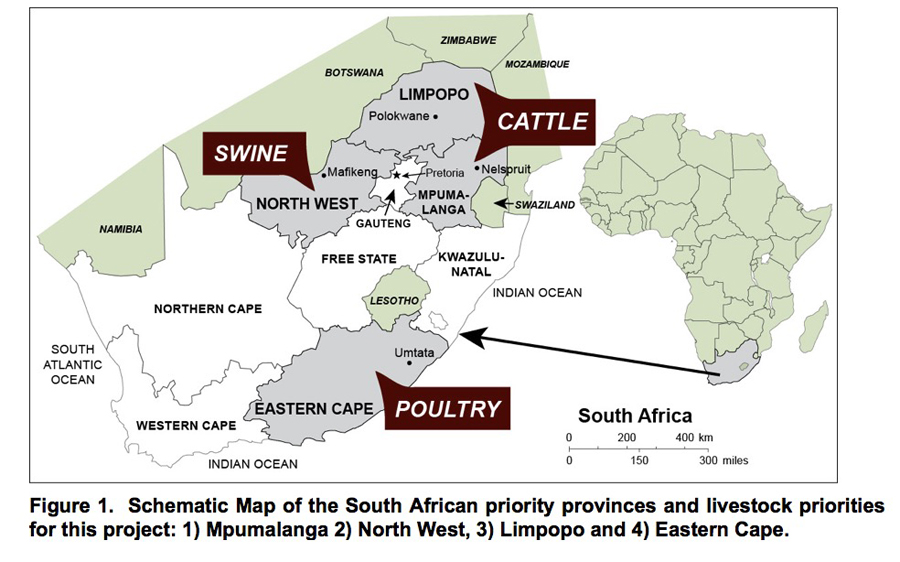
AgSecure Africa or “Less Risk, More Value: Enhancing Biosecurity Best Practices of Livestock Diseases in South Africa (EBSA)” is a program funded by the USDA-FAS to Texas A&M Agrilife Research (TA-CR-16-041) in partnership with ARC-OVI in Pretoria, South Africa. The objective of the project is to promote better biosafety and biosecurity practices by small-scale livestock producers throughout four provinces in South Africa.
 Specifically, this project focuses on three areas: 1) enhancing capacity of the local veterinary and laboratory diagnostic personnel 2) increasing knowledge and best practices for small farmers and 3) promoting awareness of the importance of biosecurity by the implementation of web-based technologies that will allow livestock owners, animal health workers, the veterinary workforce, and diagnostic laboratories to more easily diagnose key infectious livestock diseases. This program focuses on four South African provinces which were selected based on 1) high concentration of livestock, 2) extensive export of livestock and their products from these areas, 3) small scale farming husbandry practices with low biosecurity and biosafety practices, 4) high prevalence of infectious diseases, and 5) primary sources of livestock products for the region.
Specifically, this project focuses on three areas: 1) enhancing capacity of the local veterinary and laboratory diagnostic personnel 2) increasing knowledge and best practices for small farmers and 3) promoting awareness of the importance of biosecurity by the implementation of web-based technologies that will allow livestock owners, animal health workers, the veterinary workforce, and diagnostic laboratories to more easily diagnose key infectious livestock diseases. This program focuses on four South African provinces which were selected based on 1) high concentration of livestock, 2) extensive export of livestock and their products from these areas, 3) small scale farming husbandry practices with low biosecurity and biosafety practices, 4) high prevalence of infectious diseases, and 5) primary sources of livestock products for the region.
 The provinces selected include: Mpumalanga, North West, Limpopo and Eastern Cape (Figure 1). This program was designed to ultimately empower small scale farmers and laboratory workers by providing them with the adequate knowledge to recognize, effectively diagnose and better control targeted infectious livestock diseases. The intention of this project is to increase the economic viability of the livestock sector by enhancing food security and food safety.
The provinces selected include: Mpumalanga, North West, Limpopo and Eastern Cape (Figure 1). This program was designed to ultimately empower small scale farmers and laboratory workers by providing them with the adequate knowledge to recognize, effectively diagnose and better control targeted infectious livestock diseases. The intention of this project is to increase the economic viability of the livestock sector by enhancing food security and food safety.
Objective 1: Onsite Pre-event Biosecurity Assessment: Conduct an Onsite Pre-Event Assessment consisting of a series of site visits to provincial laboratories and with stakeholders from different production systems (i.e., small-scale and commercial production systems) in South Africa. Visits will also be conducted to determine available resources and capabilities needed.
Objective 2: Train the Trainer Workshop: Provide “Training the Trainer” instruction (for two individuals from each provincial lab and three individuals from ARC-OVI) designed to enhance current practices in veterinary best practices, diagnostics and biosecurity in local and regional veterinary diagnostic personnel through a 3-month online course followed by a workshop training at ARC-OVI. Specific areas of training will include: 1) Biosafety and Biosecurity in the Laboratory, 2) Postmortem in the Field, and 3) Biosecurity in the Field.
Objective 3: Train the Trainee Workshop to Enhance Biosecurity: Provide “Training the Trainee” instruction (to Local Animal Health Workers in the provinces of North West, Mpumalanga, Limpopo, and Eastern Cape) to create awareness and tools to minimize the risk of exposure to infectious disease and create a culture of the importance of animal-derived products entering market channels for human consumption that are free of contamination. Workshops will be delivered by ARC-OVI personnel who have previously attended the “Training the Trainer” program.
Objective 4: Enhancing Visibility and Diagnostics through Web-based Technology: Enhance the visibility and diagnostics through the production and dissemination of previously developed materials through posters, pamphlets, small pocket guides, and web-based technology of smart phone applications with information being translated into the appropriate languages.
Objective 5: Program Evaluation: Evaluate or assess the progress of stated project activities and the accomplishments of the team toward achieving project objectives, anticipated outcomes and project goals. Evaluation is designed to document the lessons learned and establish what works under which circumstances in order to determine the impact and value of strategies and approaches as a model for broader application for future capacity development initiatives. Formative evaluation will be integrated with project management and will provide ongoing feedback to strengthen program planning, support project implementation, and enhance the success of this project.
